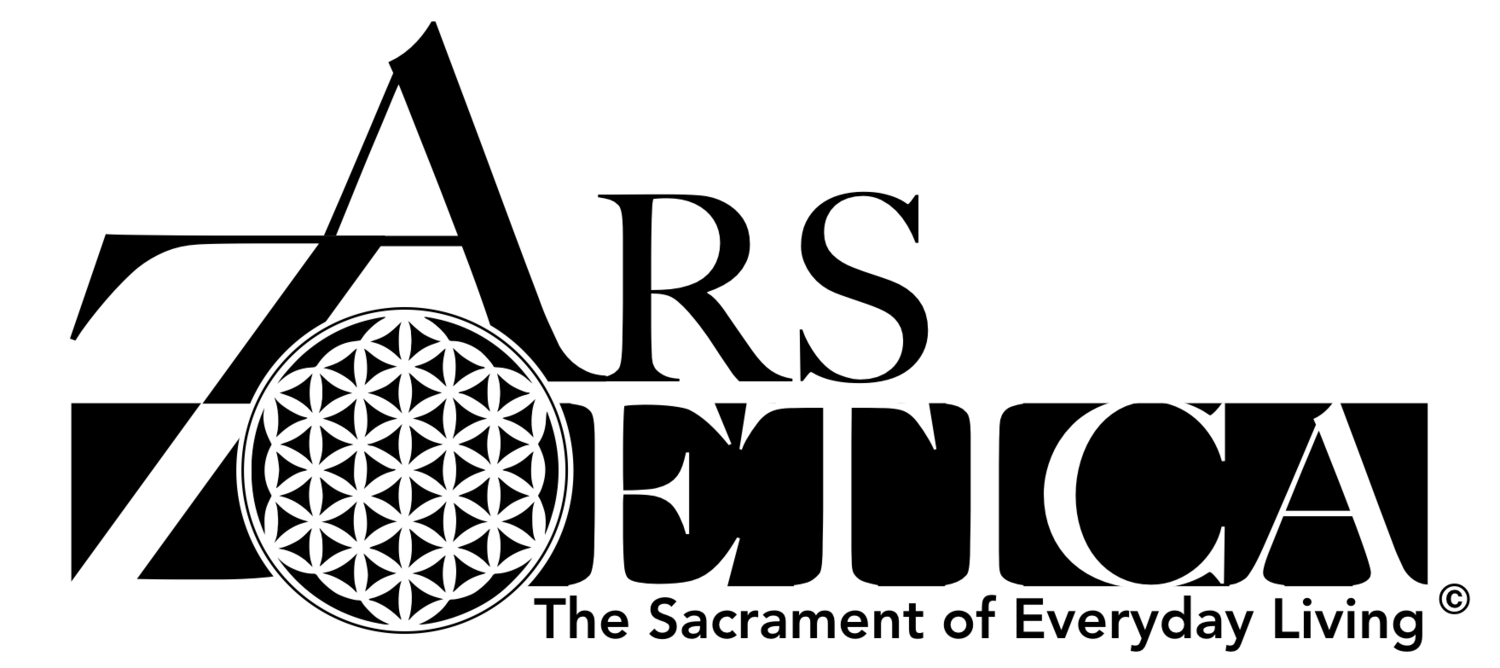Wrestling with the Concept of the Will of God
Often the pieces that I salvage from thrift stores and junk piles are exactly that: junk. Something no one wanted, and so it was donated or thrown away. I often don't give much thought to the painting that I'm covering, but sometimes the piece speaks to me even before I start reworking it. This was one of those pieces. All it was was a lavender square with some kind of sponge paint finish or something like that, and in the bottom right-hand corner someone had stenciled the word "serendipity." Deborah Baker, one of my closest friends, had just happened to see it when she was at Goodwill, and she bought it so I could do something with it.
As a piece of art, I imagine that it lacked a certain depth or sophistication, but it had a lot of heart. I can imagine it in a teenager's room reminding it's occupant that there was something more to life, or as part of a hope–filled tableau, inspiring a person new to recovery. This wasn't just someone's failed attempt at a still life. It meant something to someone at some point. And maybe it didn't hold that meaning anymore.
I have been wrestling intensely with the very concept of the will of God. If there was a God, did God have a will? And if so, did God's will extend to individuals? My whole life up until that point had been lived according to what I thought might be God's will. I had been a minister, I had gone through rigorous and intensely painful training to become and Episcopal priest, I had prayed about almost every major decision in my life, and I even prayed about minor decisions. I had lived most of my life completely surrendered to the idea of following God's will.
As my faith deepens into mystery, however, I find myself deeply questioning the things I once assumed were just part of my daily life and theology. Where did accidents figure into the will of God? Suffering? Randomness? Serendipity?
Was serendipity the same as providence? What would happen if I started asking, "What do I want to do?" Instead of "What does God want me to do?" Was I even allowed to ask those kinds of questions?
As someone who has both studied and believed deeply - and intensely - these are not questions that I take lightly. The idea of wrestling with them is not hyperbolic. It is a passionate and emotional internal struggle, at times making me question the very foundations of what I think gives life meaning.
So, when painting this piece, this canvas sang to me in is original form. Because that word was so resonant in its potential to be both trite and deeply meaningful, I decided to make a translucent glaze, pigmenting it with calligraphy ink and a tiny bit of my own blood. Wrestling is not without injury, and I wanted to honor the pain and risk inherent in these kinds of spiritual, philosophical, and emotional struggles. Blood is also infinitely deep in its own spiritual symbolism, and I so I let the glaze coagulate like blood from a crime scene, some ancient religious rite, or even like some cheap, artificially-colored food item at a southern church potluck, which, ultimately, is a kind of Christian communion.
The times in our lives when we ask these kinds of questions, though, are extraordinarily fertile. And life itself is extraordinarily fertile! The seeds here represent that. These are not just any seeds, but are saguaro seeds, which hold deep personal meaning for me. They are so small, and yet can grow into the monumental saguaro - even in (and because of) the harsh conditions of the Sonoran Desert. And even though they come from the sacred Tohono O'odham saguaro harvest, which I take part in each year, they are mostly a by-product these days, as the customs surrounding them have almost completely died out as we lose the traditional ways of indigenous life.
They are scattered randomly on the canvas, symbolizing the apparent randomness of life and the universe. But it is a controlled chaos, and in that chaos, vintage Swarovski crystals are painstakingly (and very deliberately) set exactly where I wanted them. And yet, their placement, though totally deliberate, was largely determined by where the random seeds and ink splatters had fallen.
Detail showing saguaro seeds, crystals, and coagulated ink/blood glaze
This, to me, is where I am in my theology at this moment, grappling with the mysteries of fate, faith, and random chance. Perhaps God's will, or more importantly, God's grace, shows up in serendipity. But perhaps even more important, is when grace shows up in the middle of chaos, in that we find the best treasures inside the mystery, the doubt, and in the struggle itself.
The original canvas
$850.00 12" x 12"



